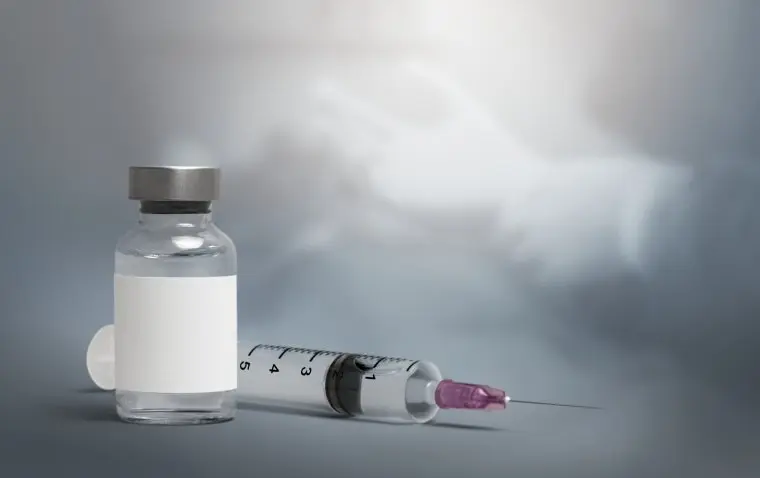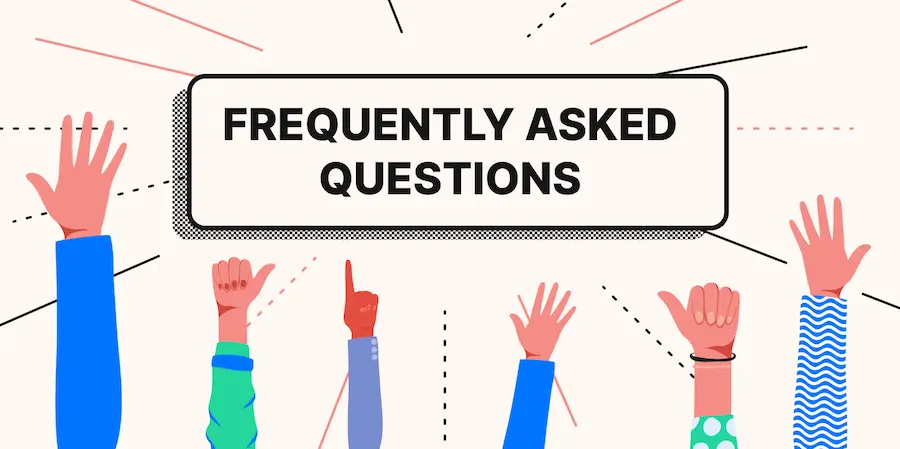NPP and Deca both feature the nandrolone hormone, but their ester attachments set them apart in a big way. These differences impact how fast they kick in and how often you need to inject them.
Ester Types and Chemical Structure
NPP comes with the phenylpropionate ester, which is a shorter chain. That means it’s a lighter compound overall.
Deca Durabolin uses nandrolone decanoate, bringing a much longer ester to the table. This longer chain bumps up the molecular weight quite a bit.
| Compound | Ester Type | Ester Length | Molecular Impact |
|---|---|---|---|
| NPP | Phenylpropionate | Short | Lower molecular weight |
| Deca | Decanoate | Long | Higher molecular weight |
The length of the ester really changes how quickly your body releases the hormone. Shorter esters like NPP let the active nandrolone hit your bloodstream faster.
Longer esters such as decanoate take their time. Your enzymes need more effort to break them down, so you get a much slower, steadier release.
Onset of Action and Half-Life

NPP’s half-life sits around 2.5 to 4 days thanks to its short ester. Most folks start feeling it within that first week.
Deca’s half-life is way longer—think 6 to 12 days. The effects can take 2-4 weeks to really show up.
Here’s how that shakes out for injection schedules:
- NPP: Every other day or even daily
- Deca: Usually just once or twice a week
If you run into side effects with NPP, you can bail out and your hormone levels drop off pretty fast. That’s a relief for some people.
Deca, on the other hand, lingers. Even after your last shot, it’s hanging around for weeks, so reversing any issues isn’t so simple.
Muscle Gains and Performance Results

Both steroids offer the same muscle-building potential, since they deliver identical nandrolone. But the speed of those gains? That’s a different story.
NPP users often notice strength and muscle fullness ramping up within a week or two. That quick punch can be motivating in the gym.
Deca users usually need to wait 3-6 weeks for things to really take off. But once it settles in, the steady hormone levels keep muscle-building going strong.
Water retention is another area where they split. NPP tends to cause less bloating at first, probably because your body clears it faster.
Deca can lead to more visible water retention as levels build up over time. That extra fluid sometimes hides muscle definition early on, which can be a little frustrating.
Recovery benefits show up sooner with NPP. Deca users, meanwhile, play the long game—joint relief and better recovery take longer but stick around.
Similarities of NPP and Deca

NPP and Deca are both nandrolone-based, so their anabolic-androgenic properties are essentially the same. The only real difference is the ester, not what the hormone actually does in your body.
Shared Anabolic-Androgenic Effects
Both NPP and Deca deliver nandrolone, so their anabolic effects match up. You’ll see similar muscle protein synthesis and nitrogen retention from either one.
The anabolic rating is 125 for both. So, muscle growth potential? Pretty much a tie, no matter which you pick.
Androgenic effects line up as well, since both hit the same androgen receptors. This means impacts like:
- Secondary sexual characteristics
- Hair growth patterns
- Voice changes
- Sebaceous gland activity
The real difference is just in how fast you feel things. NPP acts fast, Deca is the slow burner.
Mechanisms of Action in the Body
Once your body strips the ester, both work through the same pathways. Androgen receptors respond to nandrolone the same way, regardless of the delivery speed.
Both ramp up protein synthesis by binding to those receptors in muscle tissue, kicking mRNA production into high gear.
Collagen synthesis gets a boost from both, so joint and connective tissue health improves across the board.
Natural testosterone production takes a hit with either one, thanks to identical feedback loops in your endocrine system.
And as for aromatization? Both NPP and Deca convert to estrogen at a much lower rate than testosterone-based steroids. Less estrogen, fewer surprises.
Benefits for Bodybuilding and Athletics
NPP and Deca both help you build muscle by increasing nitrogen retention and protein synthesis. They also help recovery by boosting collagen production, which is a big deal for anyone pushing their joints and tendons to the limit.
Lean Muscle and Nitrogen Retention
Both compounds are great for lean muscle gains. They lock more nitrogen into your muscle cells, creating the perfect environment for growth.
When your body’s in a positive nitrogen state, building and holding onto muscle gets way easier. That’s how you get steady, quality gains—assuming you’re not overdoing water retention.
Key muscle-building benefits include:
- Faster protein synthesis
- Better amino acid uptake
- Less muscle breakdown during tough training
- More muscle cell volume
NPP usually delivers those lean gains faster—sometimes in just 2-3 weeks. Deca takes longer, more like 4-6 weeks, but the results are solid.
During a cut, both help you keep muscle on, even if you’re running a calorie deficit. That anti-catabolic effect is clutch when you’re dieting hard.
Improved Recovery and Collagen Synthesis
Nandrolone-based steroids speed up recovery by increasing collagen synthesis. That means stronger tendons, ligaments, and joints overall.
With more collagen, joints handle stress and inflammation better. This lets you train harder and more often without feeling totally wrecked.
It’s not just about muscle, either. Your body repairs the tiny connective tissue damage from heavy lifts faster, so you bounce back quicker.
Recovery improvements include:
- Less joint pain and stiffness
- Quicker healing from minor tweaks
- Shorter muscle soreness
- Better sleep—especially the deep, restorative kind
NPP’s shorter half-life means you feel those recovery perks sooner. Deca’s effects stick around longer, though, thanks to its slow release.
Enhanced Strength and Endurance

You’ll see real strength gains with both. More muscle mass leads to greater force output, plain and simple.
NPP and Deca also boost endurance by helping muscles use oxygen better and cutting down on fatigue. That means you can push through longer, harder training sessions.
Strength benefits typically include:
- 15-25% jump in big lifts
- More power for explosive moves
- Ability to handle more training volume
- Better endurance for longer sets
Strength gains build up over 8-12 weeks. NPP users often start feeling stronger by week 3 or 4, while Deca users usually notice it closer to week 5 or 6.
Performance-enhancing substance use varies widely among athletes and bodybuilders depending on individual goals and competitive requirements.
Potential Side Effects and Risks
Let’s not sugarcoat it—NPP and Deca both come with some real risks. If you’re thinking about using them, you need to know about estrogenic side effects, cardiovascular strain, hormonal suppression, and androgenic changes that can mess with your long-term health.
Estrogenic Effects and Gynecomastia
NPP and Deca both convert to estrogen in the body, thanks to the aromatase enzyme. That bump in estrogen can bring on some unwanted side effects.
Gynecomastia is the big one for most guys. That’s breast tissue growth, and it happens when estrogen levels get too high.
There’s more, though:
- Increased fat storage in typical female patterns
- Mood swings and emotional ups and downs
- Decreased libido (yep, even with more muscle)
- Nipple sensitivity and tenderness
With NPP, estrogenic effects can show up pretty quickly—sometimes within the first few weeks. Deca is slower, but the symptoms can hang around longer after you stop.
Water Retention and Cardiovascular Impact
Both compounds lead to water retention. Estrogen increases sodium retention, and the anabolic effects mess with protein synthesis in a way that encourages fluid buildup.
That extra water can cause some real cardiovascular issues:
| Cardiovascular Risk | Mechanism | Timeline |
|---|---|---|
| Elevated blood pressure | Increased blood volume | 2-4 weeks |
| Cardiac strain | Higher workload on heart | 4-8 weeks |
| Electrolyte imbalances | Sodium/potassium disruption | 1-3 weeks |
Cardiovascular effects can sneak up on you. Blood pressure might seem fine at first, but if it stays high, your heart and arteries take a beating.
NPP tends to bring on water retention fast—sometimes in the first week. That makes it easier to spot and manage early.
Deca’s water retention creeps up more slowly. You might not even notice until several weeks in, which makes it trickier to get ahead of.
Testosterone Suppression and Sperm Production
Both NPP and Deca hit your natural testosterone hard, shutting it down through negative feedback on the hypothalamic-pituitary-gonadal axis. This suppression can start within days, and just keeps ramping up as you continue.
Sperm production takes a nosedive under this kind of suppression. These compounds mess with luteinizing hormone and follicle-stimulating hormone, both of which are crucial for making sperm.
Recovery timelines? They’re all over the place, honestly:
- NPP: You might see your natural production come back in 4-6 weeks after stopping.
- Deca: For this one, recovery can drag out for 6-12 months—blame those stubborn metabolites that stick around.
The suppression brings a whole mess of symptoms, both during your cycle and after. Low energy, mood swings, and zero libido are all on the table.
Fertility concerns don’t just vanish once you’re off cycle. Research on metabolic properties suggests you’ll need a solid post-cycle plan if you want sperm production back to normal.
Hair Loss and Androgenic Concerns
Even though people call NPP and Deca “mild” androgens, they can still speed up hair loss if you’ve got the genes for it. Both convert to dihydronandrolone, which grabs onto scalp receptors and shrinks hair follicles.
Male pattern baldness progression? That’s all genetics. If baldness runs in your family, you’re playing with fire—permanent hair loss is a real risk.
Other androgenic effects can crop up too:
- More body hair growth
- Voice deepening (not as common as with other steroids, but it happens)
- Acne—think face, chest, and back
- Prostate enlargement if you’re on it for a while
If androgenic symptoms start to get out of hand, NPP’s short action means you can bail out fast. But, let’s be real, hair loss that’s already happened? That’s sticking around.
Deca, though, hangs out in your system for ages. So those androgenic effects can keep rolling long after your last shot. There’s no quick fix if things go sideways.
The 5-alpha reductase enzyme doesn’t play as big a role with these as it does with testosterone. That’s probably why you see fewer androgenic effects overall, but the risks to your hair and prostate are still there.
Optimal Dosage and Administration

NPP needs more frequent injections because it clears out fast, while Deca’s longer half-life lets you inject less often. Dosage ranges swing a lot depending on your experience and what you’re aiming for.
Typical Dosage Ranges for Each Compound
NPP (Nandrolone Phenylpropionate)
- Beginner: 200-300mg per week
- Intermediate: 300-500mg per week
- Advanced: 500-700mg per week
Deca-Durabolin (Nandrolone Decanoate)
- Beginner: 200-400mg per week
- Intermediate: 400-600mg per week
- Advanced: 600-800mg per week
NPP’s short ester lets you dial in your dose mid-cycle if you need to. It’s just easier to tweak compared to Deca.
Nandrolone administration in moderate doses tends to be safer than pushing higher. Still, both demand close monitoring, no matter the dose.
Frequency and Duration of Cycles
NPP Administration:
- Injection frequency: Every other day or 3x per week
- Half-life: 2-3 days
- Cycle length: 8-12 weeks
Deca Administration:
- Injection frequency: 1-2x per week
- Half-life: 6-12 days
- Cycle length: 12-16 weeks
NPP’s frequent shots mean your blood levels stay steadier, but it’s a hassle. Deca is more convenient, but you’ll be waiting longer for it to clear out if you want to switch things up.
Personally, I’d keep NPP cycles shorter since it kicks in and clears out fast. Deca cycles usually run longer because it just takes more time to build up and do its thing.
Impact on Post-Cycle Therapy

Both NPP and Deca will absolutely require a thorough post-cycle therapy to get your hormones back on track after use. The suppression from nandrolone is no joke, so recovery protocols aren’t optional here.
Importance of PCT After Nandrolone Use
Nandrolone compounds slam the brakes on your natural testosterone by shutting down the hypothalamic-pituitary-gonadal axis. Doesn’t matter if it’s NPP or Deca—PCT is non-negotiable for recovery.
Start your PCT after the metabolites have mostly left your system. NPP clears faster, so you can get going with recovery protocols sooner.
With Deca, you’ll probably wait 2-3 weeks after your last shot before you start PCT. For NPP, you’re looking at 3-7 days before you can kick things off.
Standard PCT meds:
- Clomiphene citrate (Clomid)
- Tamoxifen citrate (Nolvadex)
- Human chorionic gonadotropin (hCG)
Picking NPP or Deca really just changes your PCT timing, not the need for it or how tough the hormonal suppression feels. Ignore PCT at your own risk—recovery’s a whole different beast without it.
Hormonal Balance and Recovery
Post-cycle therapy tackles the hormonal chaos that hits after using nandrolone. Both compounds—yeah, that means NPP and Deca—shut down luteinizing hormone and follicle-stimulating hormone production to about the same degree.
Honestly, testosterone recovery seems to follow pretty similar timelines, no matter which nandrolone you pick. The main distinction? It’s really just about when you can actually start your recovery protocol.
Recovery Timeline Comparison:
| Compound | PCT Start Time | Full Recovery |
|---|---|---|
| NPP | 3-7 days | 6-8 weeks |
| Deca | 2-3 weeks | 8-10 weeks |
With proper PCT, most people see their natural testosterone levels get back to baseline somewhere between 6 and 10 weeks. Blood work is really the only way to know for sure if your hormones are bouncing back, so don’t just guess—check those numbers.
Now, some folks run into a longer suppression with Deca. Its longer half-life means it just hangs around, which can drag out the wait before PCT meds actually do their thing.
Frequently Asked Questions

What are the comparative effects of NPP and Deca on muscle gains in bodybuilding?
NPP and Deca are both forms of Nandrolone, but they act differently due to their ester lengths. NPP has a shorter ester, leading to faster absorption and quicker results in muscle gains. In contrast, Deca has a longer ester, releasing slowly, offering more sustained muscle growth over time.
Can you detail the differences in side effects between NPP and Deca for athletes?
The side effect profile of NPP and Deca can differ. NPP’s shorter half-life may lead to a quicker dissipation of side effects, which include water retention and potential increases in blood pressure. Conversely, Deca’s longer half-life can result in more prolonged side effects, with a notable risk of developing ‘Deca Durabolin dick’ (libido and erectile dysfunction issues).
What are the recommended dosages for NPP and Deca in a bodybuilding cycle?
Optimal dosages for NPP are typically between 300 to 600mg per week, split into multiple injections due to its short ester. For Deca, a common range is 200 to 400mg per week, considering its longer half-life which requires less frequent dosing.
How does the impact of NPP and Deca on joint health compare?
Both NPP and Deca are known to provide joint relief by increasing collagen synthesis and bone mineral content, thus potentially reducing joint pain. However, the effects of NPP might be observed faster, yet they also dissipate quicker post-cycle. Deca’s effects are more prolonged owing to its longer ester.
Is it advisable to use NPP and Deca together in a steroid cycle?
Combining NPP and Deca is typically unnecessary due to their similar functions. Generally, bodybuilders choose one to avoid compounding similar side effects and maintaining manageability of the cycle.
Is it advisable to use NPP and Deca together in a steroid cycle?
Due to NPP’s fast-acting nature, more frequent injections are required to maintain stable blood levels, often every 3 days. This contrasts with Deca, which can be injected once per week due to its longer-lasting ester.
